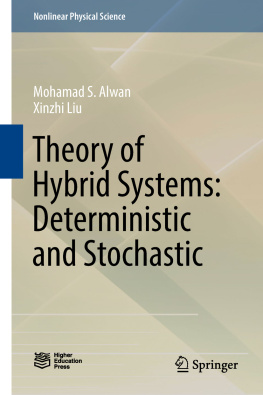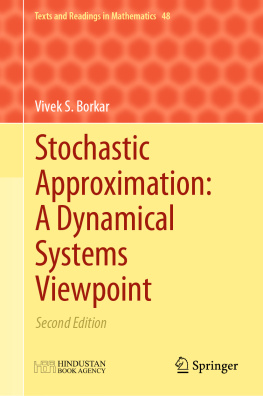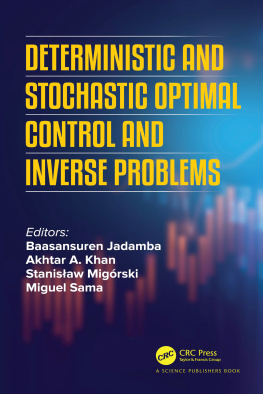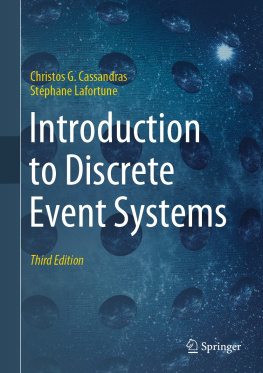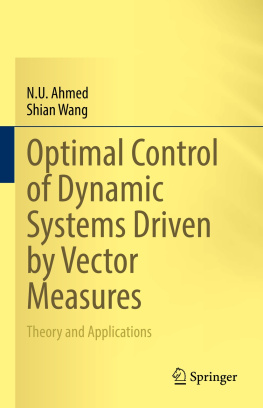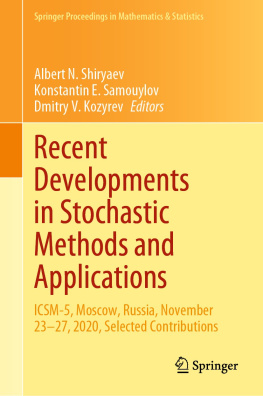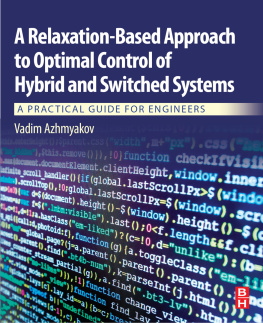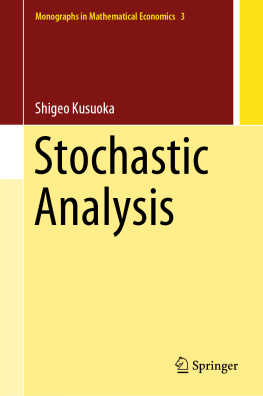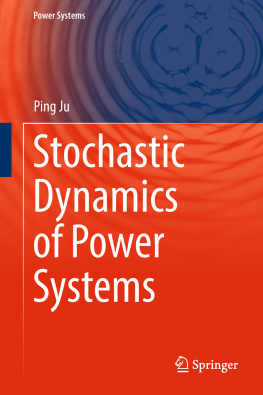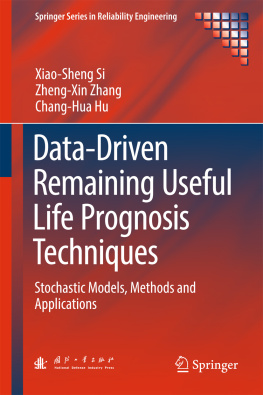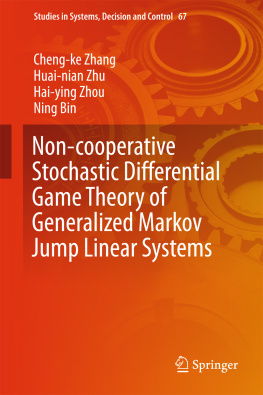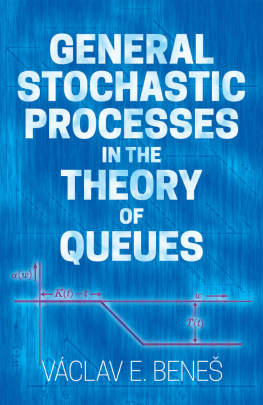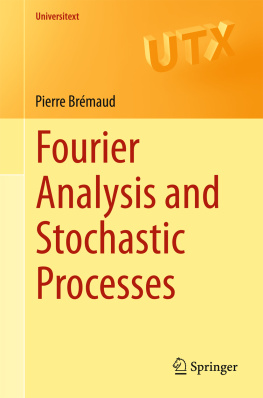ALWAN - THEORY OF HYBRID SYSTEMS : deterministic and stochastic.
Here you can read online ALWAN - THEORY OF HYBRID SYSTEMS : deterministic and stochastic. full text of the book (entire story) in english for free. Download pdf and epub, get meaning, cover and reviews about this ebook. City: S.l., year: 2018, publisher: SPRINGER, genre: Home and family. Description of the work, (preface) as well as reviews are available. Best literature library LitArk.com created for fans of good reading and offers a wide selection of genres:
Romance novel
Science fiction
Adventure
Detective
Science
History
Home and family
Prose
Art
Politics
Computer
Non-fiction
Religion
Business
Children
Humor
Choose a favorite category and find really read worthwhile books. Enjoy immersion in the world of imagination, feel the emotions of the characters or learn something new for yourself, make an fascinating discovery.
- Book:THEORY OF HYBRID SYSTEMS : deterministic and stochastic.
- Author:
- Publisher:SPRINGER
- Genre:
- Year:2018
- City:S.l.
- Rating:3 / 5
- Favourites:Add to favourites
- Your mark:
- 60
- 1
- 2
- 3
- 4
- 5
THEORY OF HYBRID SYSTEMS : deterministic and stochastic.: summary, description and annotation
We offer to read an annotation, description, summary or preface (depends on what the author of the book "THEORY OF HYBRID SYSTEMS : deterministic and stochastic." wrote himself). If you haven't found the necessary information about the book — write in the comments, we will try to find it.
ALWAN: author's other books
Who wrote THEORY OF HYBRID SYSTEMS : deterministic and stochastic.? Find out the surname, the name of the author of the book and a list of all author's works by series.
THEORY OF HYBRID SYSTEMS : deterministic and stochastic. — read online for free the complete book (whole text) full work
Below is the text of the book, divided by pages. System saving the place of the last page read, allows you to conveniently read the book "THEORY OF HYBRID SYSTEMS : deterministic and stochastic." online for free, without having to search again every time where you left off. Put a bookmark, and you can go to the page where you finished reading at any time.
Font size:
Interval:
Bookmark:
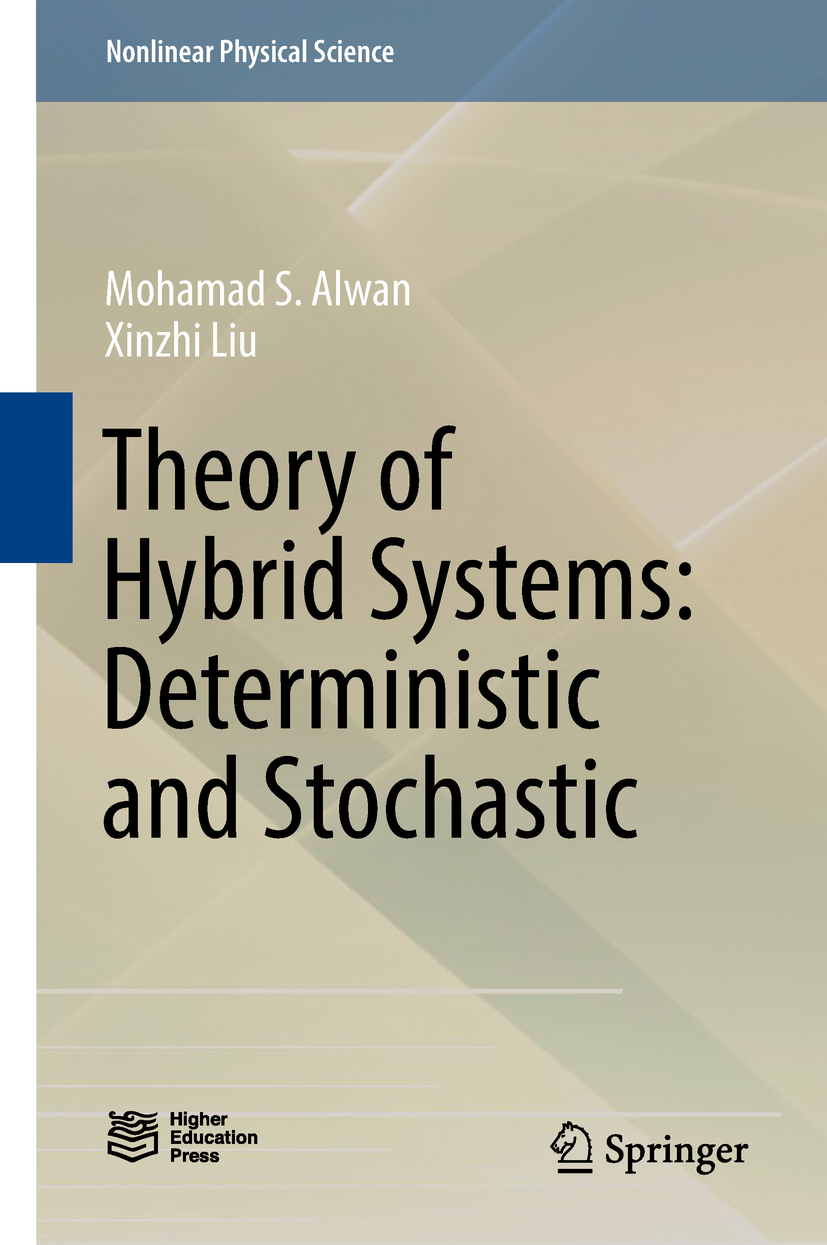
Nonlinear Physical Science
Nonlinear Physical Science focuses on recent advances of fundamental theories and principles, analytical and symbolic approaches, as well as computational techniques in nonlinear physical science and nonlinear mathematics with engineering applications.
New findings and discoveries in nonlinear physics and mathematics
Nonlinearity, complexity and mathematical structures in nonlinear physics
Nonlinear phenomena and observations in nature and engineering
Computational methods and theories in complex systems
Lie group analysis, new theories and principles in mathematical modeling
Stability, bifurcation, chaos and fractals in physical science and engineering
Nonlinear chemical and biological physics
Discontinuity, synchronization and natural complexity in the physical sciences
Series editors
Albert C. J. Luo
Department of Mechanical and Industrial
Engineering
Southern Illinois University Edwardsville
Edwardsville, IL 62026-1805, USA
e-mail: aluo@siue.edu
Nail H. Ibragimov
Department of Mathematics and Science
Blekinge Institute of Technology
S-371 79 Karlskrona, Sweden
e-mail: nib@bth.se
International Advisory Board
Ping Ao, University of Washington, USA; Email: aoping@u.washington.edu
Jan Awrejcewicz, The Technical University of Lodz, Poland; Email: awrejcew@p.lodz.pl
Eugene Benilov, University of Limerick, Ireland; Email: Eugene.Benilov@ul.ie
Eshel Ben-Jacob, Tel Aviv University, Israel; Email: eshel@tamar.tau.ac.il
Maurice Courbage, Universit Paris 7, France; Email: maurice.courbage@univ-paris-diderot.fr
Marian Gidea, Northeastern Illinois University, USA; Email: mgidea@neiu.edu
James A. Glazier, Indiana University, USA; Email: glazier@indiana.edu
Shijun Liao, Shanghai Jiaotong University, China; Email: sjliao@sjtu.edu.cn
Jose Antonio Tenreiro Machado, ISEP-Institute of Engineering of Porto, Portugal; Email: jtm@isep.ipp.pt
Nikolai A. Magnitskii, Russian Academy of Sciences, Russia; Email: nmag@isa.ru
Josep J. Masdemont, Universitat Politecnica de Catalunya (UPC), Spain; Email: josep@barquins.upc.edu
Dmitry E. Pelinovsky, McMaster University, Canada; Email: dmpeli@math.mcmaster.ca
Sergey Prants, V.I.Ilichev Pacific Oceanological Institute of the Russian Academy of Sciences, Russia; Email: prants@poi.dvo.ru
Victor I. Shrira, Keele University, UK; Email: v.i.shrira@keele.ac.uk
Jian Qiao Sun, University of California, USA; Email: jqsun@ucmerced.edu
Abdul-Majid Wazwaz, Saint Xavier University, USA; Email: wazwaz@sxu.edu
Pei Yu, The University of Western Ontario, Canada; Email: pyu@uwo.ca
More information about this series at http://www.springer.com/series/8389


Jointly published with Higher Education Press Limited Company, Beijing, China
The print edition is not for sale in China Mainland. Customers from China Mainland please order the print book from: Higher Education Press Limited Company.
This Springer imprint is published by the registered company Springer Nature Singapore Pte Ltd.
The registered company address is: 152 Beach Road, #21-01/04 Gateway East, Singapore 189721, Singapore
To Our Families
Hybrid systems have become increasingly popular during the recent decades in various fields of the scientific research and are expected to carry on the potential for further explorations. A hybrid system exhibits a combination or coexistence of continuous and discrete events and has behaviors determined by the interaction between the continuous and discrete components, and/or between them with other environmental factors. From practical perspective, it has been observed that if the interaction, within a single system, is strong, then the above hybridness has to be unified in one model. This unification has paved the path to the study of hybrid systems leading to fascinating outcomes for the following reasons: (i) The hybrid system paradigm has been recognized as a proper tool to represent a wide range of diversified applications in nature or in the human-made world. Among those are systems modeling population growth model, infectious disease models, medical drugs, chemical reaction processes, heating/cooling systems, several control systems, power systems, automated highway systems, air traffic control systems, neural networks, computer synchronization, secure communication networks, just to name a few. (ii) A large class of systems are intrinsically ruled by multimodal dynamics, such as those presented in many control systems, multibody mechanical systems, thermostats in heating/cooling systems, preypredator systems with finite, different prey sources and epidemic disease models with periodic vaccinations or treatments. (iii) Many systems are asymptotically stabilized by multiple control laws monitored by a high-level supervisory agent, and others are stabilized or state estimated by discrete events. This is the case when the available information is only measured at discrete moments, rather than continuous time period, as in the case of vaccination or drugs administrated by way of injection. On the other hand, systems may undergo impulsive perturbing forces that must be taken into account in the modeling process. (iv) Nowadays, the technology has produced much hierarchically sophisticated machinery that cannot be analyzed as a whole system. Hybrid system representations can also be considered here to minimize the complexity of these systems. Namely, they provide sequential mathematical descriptions of the system that are often manageable for analysis. For these listed reasons, the heterogenous composition in the hybrid systems has become a modeling priority which, as a result, creates an important, fruitful research field applicable to many practical areas.
Font size:
Interval:
Bookmark:
Similar books «THEORY OF HYBRID SYSTEMS : deterministic and stochastic.»
Look at similar books to THEORY OF HYBRID SYSTEMS : deterministic and stochastic.. We have selected literature similar in name and meaning in the hope of providing readers with more options to find new, interesting, not yet read works.
Discussion, reviews of the book THEORY OF HYBRID SYSTEMS : deterministic and stochastic. and just readers' own opinions. Leave your comments, write what you think about the work, its meaning or the main characters. Specify what exactly you liked and what you didn't like, and why you think so.

